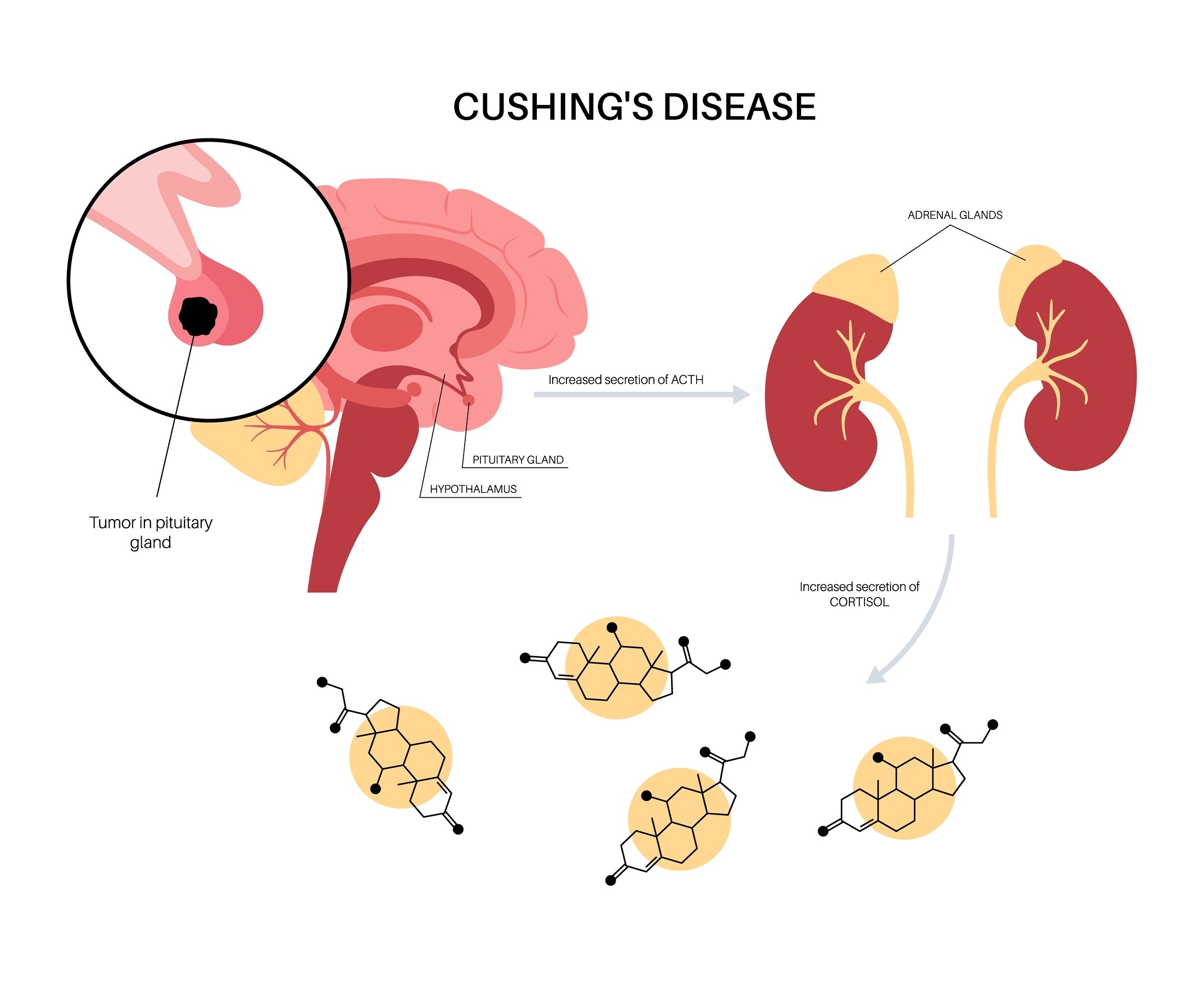
Given ongoing comorbidities and treatments in patients with Cushing disease in long-term remission, the specific impact of hypercortisolism on impaired cognition and quality of life (QOL) “remains debatable,” according to Emilie Pupier and colleagues in an article published in Frontiers in Endocrinology.
The authors examined patients with Cushing disease with no confounders and concluded that persisting comorbidities may be the primary driver of long-term memory impairment, not hypercortisolism. Conversely, they found that “persistently altered QOL may reflect irreversible effects of hypercortisolism, highlighting the need to reduce its duration.”
The study enrolled 25 patients with mean age of 44.5 ± 2.4 years, mean duration of remission of 102.7 ± 19.3 months, and no comorbidities or treatments likely to affect cognition. A total of 25 matched controls also were enrolled.
Locally developed computerized tasks were used to assess hippocampus- and prefrontal cortex-dependent memory, and the Short Form Health Survey (SF-36) and CushingQoL questionnaires were used to assess QOL. Cushing disease severity was evaluated using mean urinary-free cortisol and a clinical symptom score. Depression and anxiety also were assessed with the Montgomery–Åsberg Depression Rating Scale and Hospital Anxiety and Depression Scale questionnaires.
According to the report, patients with Cushing disease showed similar performance to matched controls in all cognitive tests. Conversely, patients had worse QOL despite no presence of depression and a minimal residual symptom score. Moreover, the authors noted most SF-36 and CushingQoL scores were negatively correlated only to duration of hypercortisolism (P≤.01-.001).
While the authors acknowledged limitations, including a small sample size and the cross-sectional design, they nonetheless concluded that their study “challenges the concept of irreversible memory impairment due to a specific and direct effect of hypercortisolism in patients below the age of 60.”







 © 2025 Mashup Media, LLC, a Formedics Property. All Rights Reserved.
© 2025 Mashup Media, LLC, a Formedics Property. All Rights Reserved.